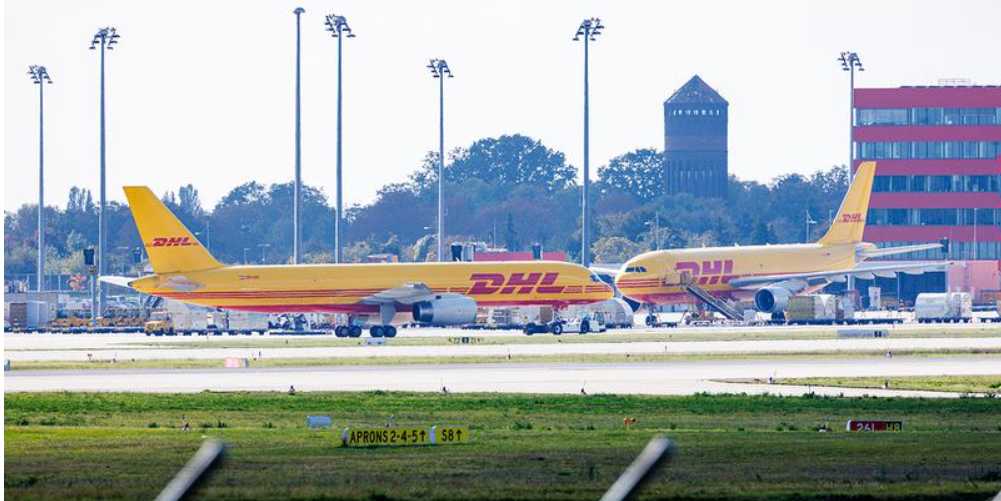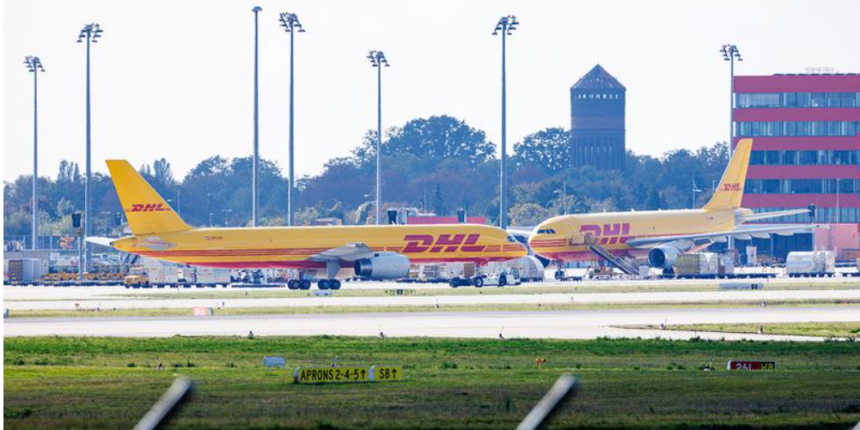In October 2024, U.K. authorities launched a thorough investigation into a massive warehouse fire that engulfed hundreds of parcels, sparking fears of sabotage linked to Russia. The fire, which occurred at a distribution center near London, destroyed significant amounts of goods and caused major disruptions in parcel delivery services across the U.K. Given the heightened geopolitical tensions between Russia and Western nations, the incident has raised concerns about the possibility of sabotage, particularly in the context of ongoing cyber-attacks, intelligence operations, and physical disruptions aimed at critical infrastructure in Western countries.
This article explores the details of the fire, the ongoing investigation, the broader context of Russian sabotage activities in Europe, and the potential implications for the U.K. and its allies.
2. The Warehouse Fire: A Devastating Event
The warehouse in question, located in a key logistics hub near the outskirts of London, plays a crucial role in the distribution of goods across the U.K. and Europe. On the night of the fire, emergency services were called to the scene after reports of large flames and thick smoke emerging from the facility. Despite the efforts of firefighters, much of the warehouse was engulfed in flames before the fire could be contained, resulting in the destruction of thousands of parcels.
The fire caused significant disruptions to the supply chain, affecting not only businesses that rely on the timely delivery of goods but also private citizens awaiting packages. Damage estimates have run into millions of pounds, and the impact on the logistics industry has been considerable, with delays expected for weeks as the warehouse operations are restored.
3. Initial Findings and Suspicion of Sabotage
In the immediate aftermath of the fire, U.K. police and fire investigators began probing the cause of the blaze. Initial reports suggested that the fire may have been accidental, potentially caused by an electrical fault. However, as investigators examined the scene more closely, several factors raised suspicions of foul play. 
Key among these was the presence of suspicious devices found within the remains of the warehouse, as well as anomalies in the building’s security systems. Investigators also found that the fire had originated in several different locations within the warehouse, leading them to suspect arson. Given the current geopolitical climate and the increase in cyber and physical sabotage incidents targeting Western infrastructure, authorities began considering the possibility of Russian involvement.
4. Russian Sabotage: A Growing Threat in Europe
The suspicion of Russian sabotage is not without precedent. Since the Russian invasion of Ukraine in 2022 and the subsequent sanctions imposed by Western countries, there has been a marked increase in covert operations, cyber-attacks, and intelligence activities attributed to Russian state actors. European nations, particularly those in NATO, have reported numerous incidents of interference, ranging from the disruption of energy supplies to cyber-attacks on government and military systems.
In recent years, Russia has been accused of conducting a campaign of hybrid warfare, employing a combination of cyber-attacks, disinformation, espionage, and physical sabotage to destabilize its adversaries. This strategy aims to exploit vulnerabilities in critical infrastructure and create uncertainty, often without direct military engagement. For the U.K., which has been a vocal supporter of Ukraine and an active participant in sanctions against Russia, the threat of sabotage is particularly acute.
5. Possible Motives for Russian Sabotage
There are several potential motives for Russian sabotage of a U.K. warehouse. First, disrupting logistics and supply chains could be part of a broader strategy to sow economic instability in Western countries. By targeting critical infrastructure, including transportation, energy, and communication systems, Russia could attempt to weaken the resolve of nations supporting Ukraine by creating internal crises.
Another possible motive is retaliation for the U.K.’s role in providing military and financial aid to Ukraine. Since the start of the war, the U.K. has been a key ally of Ukraine, sending weapons, intelligence, and other forms of support. In response, Russia has made it clear that countries aiding Ukraine would face consequences, potentially including acts of sabotage.
Additionally, there may be a symbolic aspect to the attack. By targeting a key logistics hub, Russian operatives could be signaling their ability to disrupt essential services in the U.K. This would serve as a reminder of Russia’s reach and the vulnerability of Western nations to unconventional warfare tactics.
6. Investigation: U.K. Authorities on High Alert
U.K. authorities have responded to the warehouse fire with a heightened level of urgency, given the potential implications of sabotage. The police, working in conjunction with MI5 (the U.K.’s domestic counter-intelligence agency) and GCHQ (Government Communications Headquarters), have launched a multi-agency investigation into the incident. Forensic experts are combing through the wreckage for evidence that could confirm or rule out arson, while cyber experts are examining the warehouse’s security systems for signs of hacking or tampering.
Authorities have not ruled out any possibilities, and the investigation is expected to take weeks, if not months, to complete. In the meantime, the U.K. government has increased security at other critical infrastructure sites, particularly those linked to transportation and logistics. There are also ongoing efforts to assess the vulnerability of supply chains to sabotage and ensure that contingency plans are in place should similar incidents occur in the future.
7. Wider Implications for National Security
The warehouse fire has highlighted the broader risks that the U.K. and other Western countries face from hybrid warfare and sabotage. The threat is not limited to traditional military targets; instead, it encompasses a wide range of civilian infrastructure, including energy grids, transportation networks, and communication systems. As Russia continues to pursue its objectives through unconventional means, the importance of securing critical infrastructure has become even more pronounced.
For the U.K., the incident serves as a wake-up call. While the country has long been a target of cyber-attacks, the possibility of physical sabotage represents a new and evolving threat. The government will likely need to invest in additional security measures, including improving the resilience of critical infrastructure, enhancing intelligence-sharing between agencies, and increasing cooperation with international partners to counter the threat posed by state-sponsored sabotage.
8. Impact on U.K.-Russia Relations
The warehouse fire, if proven to be the result of Russian sabotage, could have serious consequences for U.K.-Russia relations. Diplomatic ties between the two countries have been strained since the poisoning of former Russian spy Sergei Skripal in Salisbury in 2018, an event that led to the expulsion of Russian diplomats from the U.K. and further sanctions against Russia.
In the years since, the U.K. has been a staunch critic of Russia’s foreign policy, particularly in the context of the war in Ukraine. The suspicion of Russian involvement in the warehouse fire would only deepen these tensions, potentially leading to new sanctions or other punitive measures against Moscow. It could also prompt the U.K. to intensify its cooperation with NATO allies in countering Russian aggression, both through traditional military means and by bolstering cyber defenses and intelligence capabilities.
9. The Role of NATO and International Cooperation
The warehouse fire may also have broader implications for NATO and international security cooperation. As Russia continues to engage in hybrid warfare tactics across Europe, NATO member states are increasingly focused on the need for collective defense not only against conventional military threats but also against cyber-attacks, sabotage, and other forms of unconventional warfare.
The U.K., as a key NATO member, will likely push for greater coordination within the alliance to address the threat of sabotage. This could involve sharing intelligence on Russian operations, conducting joint exercises focused on defending critical infrastructure, and developing new strategies to counter hybrid warfare tactics.
At the same time, international cooperation beyond NATO will be essential. The U.K. and its European partners will need to work closely with non-NATO nations that may also be targeted by Russian sabotage, such as Finland and Sweden. By fostering a united front against these threats, Western nations can enhance their resilience and reduce the effectiveness of Russia’s destabilizing tactics.
10. Conclusion: A New Era of Sabotage and Hybrid Warfare
The U.K. police probe into the warehouse parcel fire, coupled with fears of Russian sabotage, underscores the evolving nature of modern warfare. As state actors like Russia increasingly turn to unconventional methods to achieve their geopolitical goals, Western nations must adapt by strengthening the resilience of their critical infrastructure and developing new strategies to counter these threats.
While the investigation is still ongoing, the incident serves as a stark reminder of the vulnerabilities that exist in today’s interconnected world. The potential for sabotage—whether through cyber-attacks, physical disruption, or a combination of both—is a growing concern for national security, not only in the U.K. but across Europe and the broader international community.
As the U.K. continues to grapple with the fallout from the warehouse fire, it will need to reassess its approach to defending critical infrastructure, both at home and abroad. The threat posed by hybrid warfare tactics is unlikely to dissipate anytime soon, making it all the more important for nations to work together in addressing the challenges posed by state-sponsored sabotage. ALSO READ:-25 Killed, Including a Mayor, in Israeli Strikes in Lebanon: A Critical Escalation in Regional Tensions





